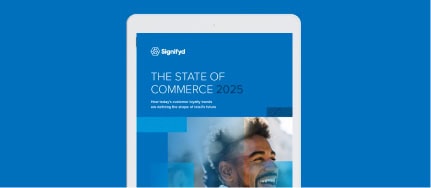Fraud may be a fact of life, but how you deal with it is in your control
With a cell phone, a computer and $75 – just enough to buy a Florida business license – Ken Harrison created Enjuku Racing Parts, LLC in 1999 in his college bedroom. But he never budgeted for fraudsters who would try to sap his entrepreneurial spirit. “It made me feel terrible because I felt vulnerable that people knew they could just get away with it,” says the performance car parts dealer. “We were getting hit left and right. The word must have gotten around that ‘hey, this website is pretty easy to buy through.’”
Harrison says his salespeople manually reviewed orders and the ones that were the least bit suspicious were canceled. “If they called us back, we would take the order. If they didn’t, they’d go away, because it most likely was (fraud). We were cancelling a lot of orders because we just didn’t have time to reach out to everybody.” Small and medium online retailers like Enjuku often try to get by using common sense and instinct to judge whether a sale is legitimate. But in a world full of online fraud, that’s not always enough. “Through experience we know that (if) it’s (a woman’s) name on the card and he won’t let us talk to her, then that’s a problem.”
“If a mom calls us back and says ‘hey, I let my son use it. Do it.’ We still don’t know if that’s fraud or not. A lot of times it was.” They learned from experience that speaking to someone didn’t necessarily mean the order was legitimate. “It’s probably going to the be the girlfriend of the guy stealing the stuff calling that’s saying ‘hey, I’m his mom.’ We’ve had that happen quite a few times.” Harrison says his fraudsters are mostly the same demographic – 18-35 year-old males – as his customers. And what do they try to steal the most? “anything over a thousand dollars.”
“They want to go for something big whether it be a full suspension set up or a big turbo charger. Something expensive,” says the owner of the Orlando-based firm. “We were getting a lot of freight forwarders in Miami – people in South America and the islands that were ordering – and they were almost always fraud. They would just slip through the cracks, really.”
From 0 to 60
Today, Enjuku Racing Parts is a $10 million business generating 60% of its volume is from online sales. But it began with a plan to market Nissan racing parts to the general public. “It fell into my lap,” says Harrison. “I had a Nissan at the time and I went to the local speed shop to get a part and they pretty much laughed at me and told me to go away.”
“So I thought to myself ‘well that’s not right ’cause I know a lot of people who have these Nissans. So I figured I’d start my own business selling parts for it,” he says. “I collected a list of different manufacturers that were selling things and kinda started reselling from there.”
Harrison says the word “enjuku” is Japanese for ‘perfection.’ However, these days it translates into an expanding business, thanks in part, to Signifyd guaranteeing every one of Enjuku Racing’s transactions.
“I was willing to spend the money to make myself feel better and not feel like I’m being taken advantage of.”
Signifyd does this by leveraging real-time machine learning to incorporate external data and comparing those credentials to Signifyd’s database of transactions across thousands of merchants. With superior data and specialized risk analysts Signifyd can instantaneously approve more orders than merchants can by themselves, which is why the company offers a 100% financial guarantee for every approved order.
As a result, Harrison says his credit card decline rate which used to be $35,000 a year is now “virtually zero.” What bothered him most about fraudsters was the business that he had to turn away due to fear of fraud. So how much has Signifyd saved Enjuku? In the first six months, the total was $76,516, according to Harrison. That’s 6.66% of all online sales, he says. “I didn’t see the decision to use Signifyd as ‘it would help us stop losing money because we’re spending money to use the service’, but more so the hope that we would gain extra sales and recover all the time it takes us to do manual fraud review ourselves.”
Following the Rules
Harrison says when he was getting hit by fraud on a regular basis credit card companies were no help. “We would ship to a verified billing address and (require) the card holder signature – which is what they require for us to be protected – but half the time they’d still demand the chargeback and make us eat it which made no sense,” says Harrison. “I’d spend a lot of time filling out their forms and faxing back all the documentation to show that we did everything we were supposed to do. But it seems their cardholder can just say ‘no, that wasn’t me’ and the credit card company believes them and that’s the end of it. So the retailer is the one that gets stuck with the loss.”
Even if he turned to the police for help, Harrison says he’d get no satisfaction. “We would call the local (officials) – wherever the customer was. I didn’t know who to call or what office to call,” says Harrison. “There wasn’t much that they were willing to do or could do. My assumption with credit card fraud is that I could call the FBI or call somebody. But for a $900 order, how many resources are they really going to be able to put out for something like that?”
As a result, Harrison says, he’s a fan of Signifyd. “I think this is the first time I’ve seen something that truly protects the merchant in all areas whereas before it was just the merchant fending for themselves.” He says he’s also accepted that as an online retailer fraud will forever be a fact of life. “You have to be willing to just deal with it. You are going to get hit with it,” says Harrison. “I had somebody the other day ask me about Signifyd. I was explaining to him what we gained from it and I think he’s already looking into using them too.”









